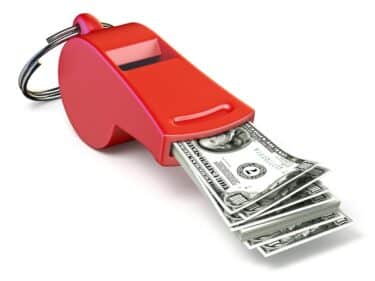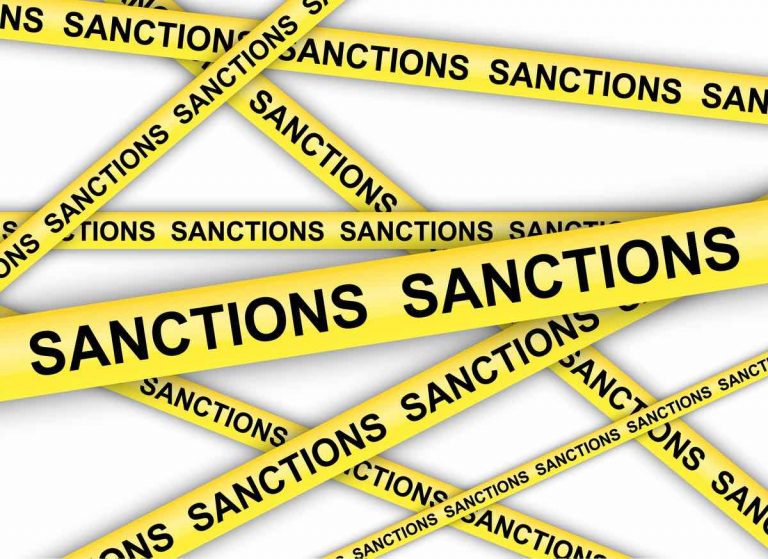Although violations of OFAC sanctions are enforced primarily by the Office of Foreign Assets Control and the Department of Justice, the SEC can take enforcement action where the conduct violates the books and records provision of the Exchange Act or violates a registrant’s disclosure duties under the federal securities laws, including Section 13(r) of the Exchange Act.
For example, in September 2019, Quad/Graphics Inc., a Wisconsin-based digital and print marketing provider, paid nearly $10 million to resolve charges that it paid or promised bribes to Peruvian government officials to win sales contracts and avoid penalties and created false records to conceal transactions with a state-controlled Cuban telecommunications company, which were subject to U.S. sanctions and export controls laws.
Certain Quad employees concealed transactions with Cuba in internal emails and falsified books and records to conceal the transactions, including references to a “broker” that were intended to conceal the efforts to use a third party as a pass-through company. As a result of this scheme to hide transactions with Cuba, Quad’s contracts, shipping documents, invoices, and journal entries were inaccurate, thereby violating the books and records provisions of Section 13(b)(2)(A) of the Exchange Act. Those books and records provisions require issuers to make and keep books, records, and accounts which, in reasonable detail, accurately and fairly reflect their transactions and dispositions of the assets of the issuer.

Penalties for sanctions violations can be substantial. In March 2017, Zhongxing Telecommunications Equipment Corporation paid $100,871,266 in a settlement agreement for 251 apparent violations of the Iranian Transactions and Sanctions Regulations. ZTE had used third-party companies to surreptitiously supply Iran with a substantial volume of U.S.-origin goods, including controlled goods appearing on the Commerce Control List.
In light of the massive exposure to substantial penalties, an issuer concealing sanctions violations is likely violating the federal securities laws, and therefore a whistleblower reporting the violation to the SEC could qualify for an SEC whistleblower award, including a related action award.
Before submitting a whistleblower disclosure to the SEC about sanctions evasion, consult with an experienced sanctions evasions whistleblower attorney to evaluate whether to file a disclosure with the FinCEN Whistleblower Office under the Anti-Money Laundering Act.
Sanctions Evasion Whistleblower Rewards Law Firm
The sanctions evasion whistleblower lawyers at Zuckerman Law have experience representing sanctions evasion whistleblowers and one of our attorneys is also a Certified Public Accountant and Certified Fraud Examiner.
Experienced and effective sanctions evasion whistleblower attorneys can provide critical guidance and effective advocacy to whistleblowers to increase the likelihood that they get the maximum award from the FinCEN Whistleblower Program.





U.S. News and Best Lawyers® have named Zuckerman Law a Tier 1 firm in Litigation – Labor and Employment in the Washington DC metropolitan area.
Whistleblower Awards for Reporting Violations of US Sanctions
Reporting a Sanctions Violation Can Qualify for an AMLA Whistleblower Reward from the Anti-Money Laundering Whistleblower Reward Program
Pursuant to the Anti-Money Laundering Whistleblower Improvement Act, the Anti-Money Laundering Act (AMLA) was expanded to require Treasury to pay an award to a whistleblower for a voluntary disclosure of original information that results in the collection of sanctions above $1 million for a violation of:
- the International Emergency Economic Powers Act (50 U.S.C. 1701 et seq.);
- sections 5 and 12 of the Trading With the Enemy Act (50 U.S.C. 4305; 4312); or
- the Foreign Narcotics Kingpin Designation Act (21 U.S.C. 1901 et seq.).
An AMLA whistleblower can report anonymously (if represented by an attorney) and can obtain an award of 10% to 30% of the collected monetary sanctions.
Click here for a Whistleblower Lawyer’s Guide to the Anti-Money Laundering Whistleblower Program.
SEC Whistleblower Program and Broker-Dealer AML Violations

Since the inception of the SEC Whistleblower Program, the SEC has paid nearly $1.8 billion in awards to whistleblowers, including to whistleblowers that we have represented. The largest SEC whistleblower awards to date are $279 million, $114 million, $110 million, and $50 million. See a summary of the SEC whistleblower cases that have resulted in large awards.
Experienced and effective SEC whistleblower attorneys can provide critical guidance and effective advocacy to whistleblowers to increase the likelihood that they get the maximum award.








